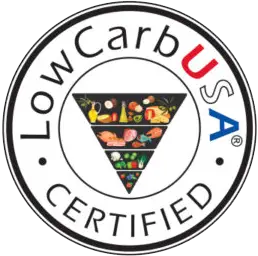“Looking at it under a microscope, natural wine looks like a small universe.” – Gilles Verge, natural wine grower in Burgundy.
One of the beautiful things about natural wine is that it’s alive. It’s full of native yeasts and beneficial bacteria.
From a taste perspective, that means each bottle of natural wine is a unique experience. Leave the same bottle open on your counter overnight and you’ll wake up to a whole new wine.

But the beauty of living wine goes beyond taste. All those yeasts, bacteria, and colorful compounds that make Natural Wine delicious also help you live a healthier life. The secret lies in your gut bacteria.
Right now, as you’re reading this, trillions of bacteria are thriving in your gut. These little companions outnumber your own cells – you’re actually more bacteria than you are human. Feeding the good bacteria in your gut can give you some glorious health benefits: staying lean, feeling happy, and even being more social.
For example…
- Mycobacterium vaccae, a bacterium that’s naturally in the soil around you, significantly increased happiness in lung cancer patients who took it as a probiotic.
- A diverse gut biome can boost tryptophan. Tryptophan turns into serotonin, the same brain chemical antidepressants enhance. No surprise that a balanced gut can reverse depression and anxiety.
- Diverse gut bacteria can also increase your metabolism, and even affect social skills.
Your gut bacteria can help you look and feel more vibrant.
That begs the questions: how can Natural Wine and gut health work together?, Can you enjoy the decadence of Natural Wine while maintaining a healthy lifestyle?

How do Natural Wine and Gut Health Overlap?
Both Natural Wine and our guts are alive, which means they’re rich with precious bacteria and compounds that enhance your microbiome.
Polyphenols, the antioxidants that give red wine its passionate color, feed good gut bacteria like Enterococcus, Prevotella, Bacteroides, and Bifidobacterium. Polyphenols also remove harmful gut bacteria to make room for the new ones to grow. Two superb sources of polyphenols in your diet are red wine and coffee.
Flavanols and wine aroma compounds protect brain cells from dying in people who drink moderate red wine daily and ward off Alzheimer’s Disease in mice. The key is that the wine passes through the gut, where your bacteria break the flavanols down into compounds that keep your brain healthy.
Resveratrol, an antioxidant found in grape skins, makes mice leaner by fostering a balanced gut. You may have heard of resveratrol; it gets a lot of attention in the news, but the reality is that most red wines have nearly undetectable amounts of it. The wines that do have plentiful resveratrol are Malbec, Pinot Noir, Petite Syrah, and St. Laurent. Drink them to get your resveratrol fix.
Saccharomyces cerevisiae is a wild yeast that gives wine a spicy, fruity flavor. It’s good for more than mouthwatering taste: S. cerevisiae also increases absorption of zinc, magnesium, calcium, and iron through your intestinal wall and decreases stomach pain in people with irritable bowel syndrome (IBS). Commercial wine is sterilized to get rid of the majority of native yeast, but you’ll find an abundance of S. cerevisiae in natural wine.
Probiotic bacteria also form in wine while it ferments. Commercial wines are filtered to get rid of nearly all bacteria and sediment. Natural wine keeps those beneficial bacteria in. Among them is Pediococcus pentosaceus, a bacterium that attaches to your intestinal wall and protects it from pathogens like E. coli. Wine also contains lactic acid bacteria that have similar probiotic benefits as fermented foods like kimchi and miso, and unique wine probiotics that decrease gut inflammation in mice.
Anthocyanins in red wine are prebiotics that support a balanced gut biome by helping good gut bacteria take over bad gut bacteria.
Considerations When Thinking About Natural Wine and Gut Health?
A regular bottle of wine can damage the delicate microbiome within, although the harmful compounds are either far lower or entirely absent in Natural Wine.
Sugar can feed the harmful yeast Candida and other pathogens in your gut. Sugar hurts gut bacterial balance and decreases brain function in mice, too. Fortunately, all our wines are sugar-free because they’re left to fully ferment. The result is crisp wine that won’t cause bloating or dull your thinking the next day.
Alcohol is a toxin for your gut too. It increases gut permeability (leaky gut), which can cause gut inflammation. That’s one reason why every bottle from Dry Farm Wines is low-alcohol (<12.5% ABV). The high amount of anti-inflammatory polyphenols in natural wine may also counter the effects of alcohol.
Acetaldehyde is a fermentation byproduct that increases intestinal permeability and makes you feel hungover. During the final steps of fermentation, though, yeasts use up acetaldehyde as fuel, and bacteria break it down. We make sure the natural wines we stock have far less acetaldehyde because they’re unfiltered and ferment without human intervention. Low acetaldehyde is part of what keeps Dry Farm Wines hangover-free.

How to get the healthiest wine for your gut bacteria
The short answer is to get real wine, grown in accordance with nature.
Organic grapes. Grapes grown organically (without pesticides) have more polyphenols and antioxidants than conventional grapes do. Grapevines produce antioxidants as a natural way to protect against microbes and pests. Organic vines aren’t artificially protected by chemical sprays, which means they produce many more antioxidants to survive.
Natural Wines. Commercial processing techniques like extreme filtration damage or remove many of the good compounds in wine. Manufacturers often replace them with artificial coloring and lab-created yeast strains.
Low sulfites. Sulfites kill bacteria to stabilize a wine. The lower the sulfites, the more alive a wine remains. You can see the difference under a microscope – low-sulfite wine is vibrant with a diverse spectrum of wild bacteria and yeast.
Sugar-free, low-alcohol wine. Sugar and alcohol are the two biggest toxins in wine. That’s why all our wines are lab-tested to be sugar-free and low-alcohol (below 12.5% alcohol by volume).
By drinking moderate amounts of sugar-free, low-alcohol Natural Wine, you’ll help keep the companions in your gut healthy and happy, and in turn, they’ll take good care of you. You can enjoy the pleasure of artisanal wine while supporting a strong body and a sound mind.
Ready to try pure, handcrafted Natural Wine?
THE DRY FARM WINES PROMISE
Every bottle of Dry Farm Wines Wines must taste delicious. After all, even if a wine is grown to the highest natural standards, it needs to taste good to enjoy it. These wines undergo a meticulous tasting protocol by our wine team. They taste for purity, honesty, sense of place, and dynamic spirit. As a result, their Natural Wines are vibrant and elegant.
Not only are Dry Farm Wines naturally delicious, but they are also:
- Sugar Free
- Lower Alcohol
- Lower Sulfites
- Organically Farmed
- Contain No Industrial Additives
It is time to become a wine club member! Join a community of wine enthusiasts at Dry Farm Wines today by checking out our membership box. Use this link for a special offer of an extra bottle in your first box for just a penny!
Head to dryfarmwines.com/lowcarbusa to collect your extra bottle!
This is post is sponsored by our low-carb wine partner Dry Farm Wines, who have provided delicious wines for many of our successful Symposium for Metabolic Health conferences.


